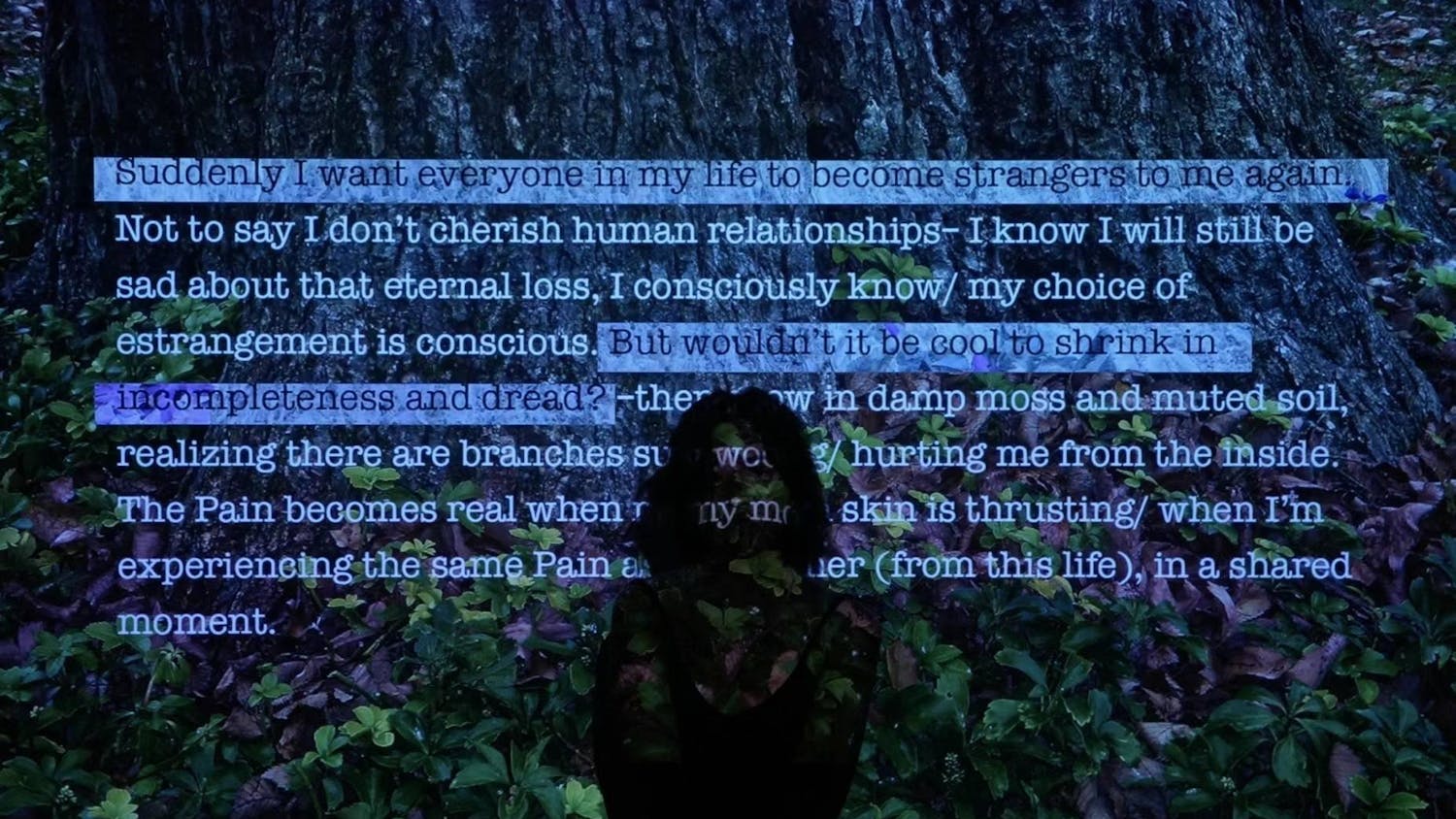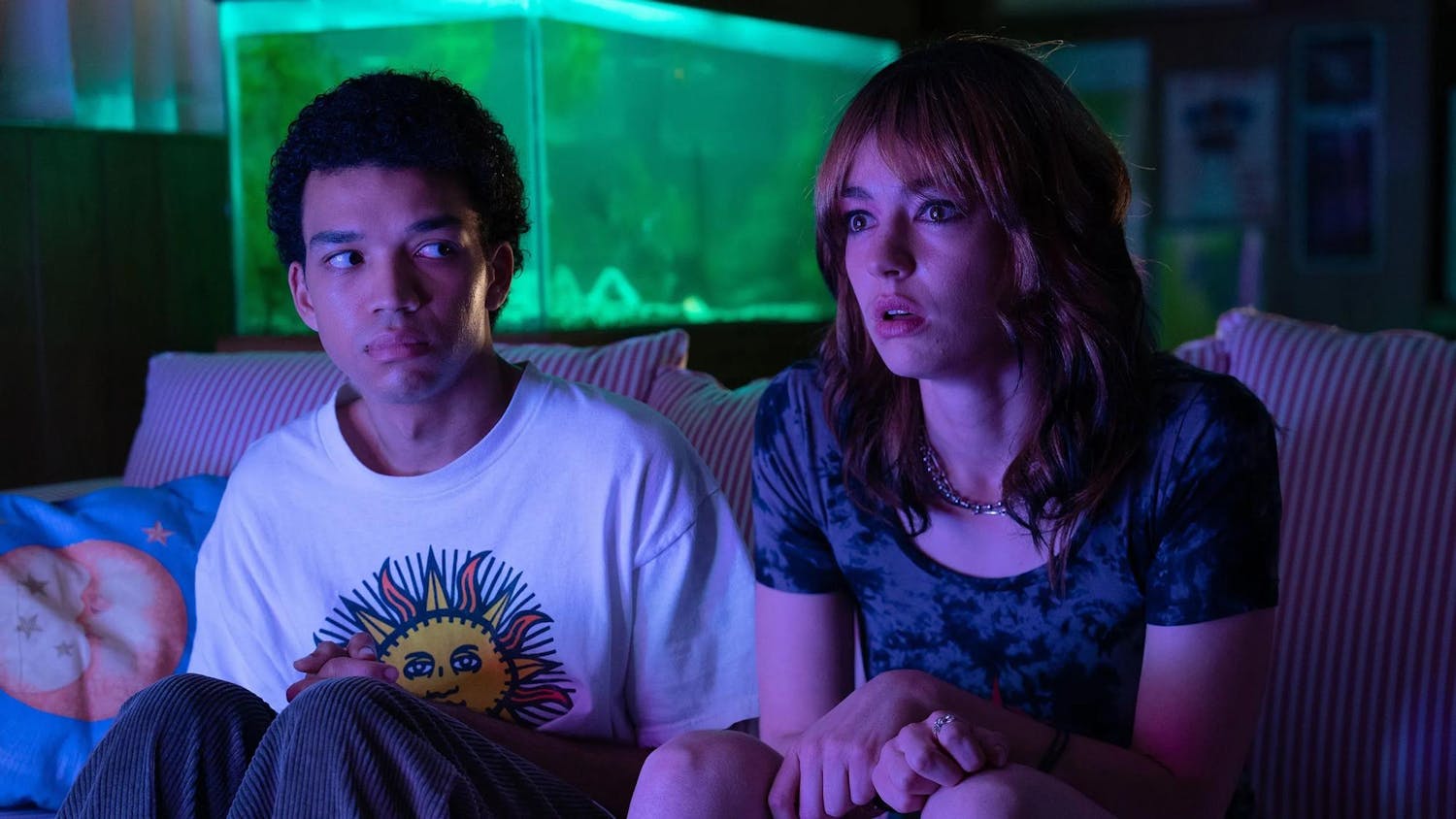"Lulu," Sock and Buskin's latest production, is irresistibly dark and sensual, an exploration of the interplay between danger and sexual desire.
The titular character, portrayed fearlessly by Hollis Mickey '10, is sexually aggressive and enchantingly attractive, yet impassive in the face of the wrongdoings she commits. The play, which runs in Stuart Theatre March 4–7 and 11–14, shifts geographically from Germany to Paris and then to London, chronicling the riveting life of Lulu as her multiple husbands subsequently die after marrying her.
Her husbands, played with fervor by Chris Tyler '10, Aubie Merrylees '10 and Gordon Sayre '12, each try to mold her to fit their ideal and choose their own name for her. One of her husbands calls her Eve, a possible allusion to the biblical Eve.
Lulu's malleability at the hands of her husbands introduces the issue of sexual identity, which Spencer Golub, the show's director and professor of theatre arts and performance studies, said is an important element of the play. "Lulu" begins with a jubilant female character sensually offering her body to the gaping mouths, clawing hands and whims of men.
An undoubtedly bold play, the plot is driven by sexual aggression and the desperate hunger to fulfill it. Lulu cannot control the allure she has for men, as one by one, they plead for her love with gripping, uncontrollable urges. Lulu responds passionately to their love but cannot fulfill her own desires and eventually brings doom upon those who fall for her.
Many of her admirers die over the course of the play — by their own hand or Lulu's — including the lesbian Countess, played with poignancy by Jing Xu '10. Despite the poisonous nature of their love for Lulu, despite the incredible sacrifices they must make, one of her husbands admits to her, "There is something about you that I cannot resist."
While she yells and screams in pain at the death of her husbands, and symbolically attempts to cleanse herself of her actions by rubbing her arms and body, Lulu recovers after each love affair to quickly move on to another man.
Commenting on Lulu as a character, Golub said, "I don't see this as being life. (It) draws the inner springs of life, but it wouldn't be mistaken for real life, (it's) not meant to be."
Though comical at times, especially when the men in the cast interact, characterized by silly dialogue and excitement, the play is dark, defined by violence and aggression. The use of weapons such as a knife, axe and gun suggest a disturbing relationship between violence, sex and love.
Portrayed in a suggestively artistic and abstract way, the weapons indicate a frightening enjoyment of danger within one's sexual yearning and desire.
The danger is further emphasized toward the end of the play when Lulu works as a prostitute in London. One of her many admirers appropriately tells her that "a brothel is your natural habitat."
The play also works as a mirror of itself, where the second part repeats events and actions from the first, including Lulu's attempt to cleanse herself in the on-stage bathtub and a song she sings in each act.
But what is most striking about the play is its intensity. Everything must be taken to the limit and love becomes fatal.
From the beginning, the stage is clouded in mist, lit by dim lamps that barely penetrate the murky atmosphere. The mix of myriad lights and colors suggest the explosive creativity and underlying symbolic meanings of the story. Washed in red, the stage hints at the possible grotesqueness of the consequences of sexual pleasure, lack of self-control and brazen passion.
Instead of an overburdened set, "this set condenses the stage, allows you to create multiple looks and scenes. Different doors are used and have different meanings," said Stage Manager Drew Madden '10.
"This is a tense production," Golub said. The show has "great range of expression and color and shock," he said.
Lulu's body is constantly moving, an endless repetition of symbolism throughout the play.Her fingers rock, her arms flail, and her body tremble like a slim, fragile twig in rhythm with the music.
The play was originally a multi-hour work by Frank Wedekind and has been compressed over time to its current form. The show "compresses not just time and space, but also emotion and inner lives of characters," Golub said.
"It is an intense, high-volume, high-voltage production," he added.
Golub said he hoped the audience would know that they have experienced the "sense of all that's there — to bring out all the invisible, unspeakable things."
"One of the great things is how I don't know how the audience will react," said Madden, who worked with Golub previously on "The Changeling" in 2008. "Some will be shocked. Others will be repulsed."
Golub described the rehearsal process as painting and "moving a canvas, using different colors."
"As a director, I tend to bring a personal vision and style — this is just the choice that I make. It's not only meant about the play, but production also is a personal experience of life," Golub said.
"Lulu" is ultimately a play that explores the mysteries of desire and affection in relation to sexual appeal and passion. It experiments with what one is willing to sacrifice for love. And Lulu, the epicenter of all desire and attraction, serves as the dark core of this exploration.




